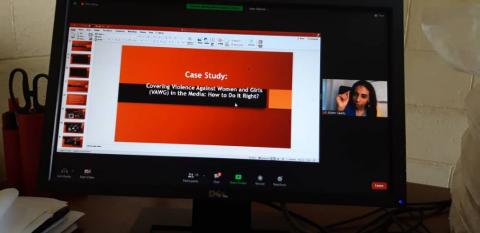
MAKERERE UNIVERSITY HOLDS A FOUR DAY SAFETY AND SECURITY TRAINING
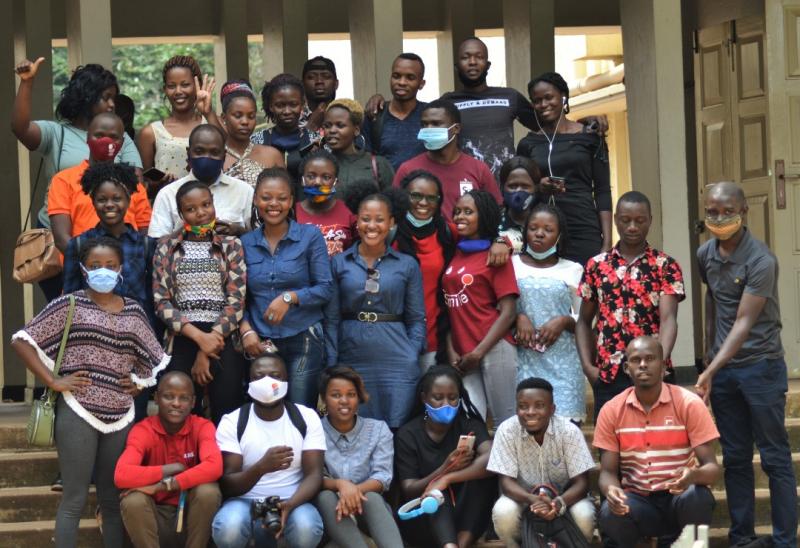
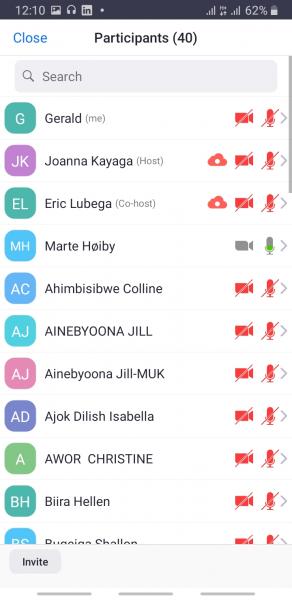
The Department of Journalism and Communication, Makerere University in Uganda in cooperation with Journalism & Media International Center organized a four day webinar on safety and security of journalists from 7 – 10 December.
During the opening of the webinar on 7 December 2020, the Head of Department, Dr. Aisha Nakiwala noted that safety has become an important issue because journalists world-over face threats from state and non-state actors. She noted that sometimes society does not take such threats seriously because they don’t appreciate the media’s contribution to national development. Dr. Nakiwala said that this training came at the right time when many Ugandan journalists are facing threats, harassment and intimidation while covering the on-going election campaigns. She said such threats are partly responsible for the high staff turnover in Ugandan newsrooms. She commended JMIC and the Norwegian Ministry of Foreign Affairs for supporting the training.
The Managing Editor of Daily Monitor newspaper Mr. Tabu Butagira who was one of the trainers noted that journalists are targeted by the state because they document excessive use of force by security agencies on civilians. Butagira who spoke about his own experiences as a journalist in Uganda, gave a holistic approach on safety and security (physical, digital and psychological). He noted that apart from the state, other sources of threats include internal workers in news organisations and one’s close associates who become agents of external interests. He advised participants to always alert someone while going to meet sources, and to avoid positing critical information about themselves on their social media.
The second day of the training was more international with Marte Høiby from the Norwegian Media Authority. Drawing on her own PhD research, Høiby spoke about “War and military journalism and targeting the press as a means to silence journalists” and “Online harassment of journalists as a tool of censorship.” She noted that reporters need to take an active responsibility, explaining the context and use their skills to avoid a natural bias while reporting as a means of promoting peace journalism. She observed that journalists are targeted because they wield power and influence.
Trond Idås from the Norwegian Union of Journalists also used his own research to explain how to deal with trauma in his lecture titled “Journalists, post-traumatic stress, Post traumatic growth.” He noted that in the past, journalists were falsely considered strong people who were less likely to be affected by stress. He said that some of the major sources of stress for journalists include fear for one’s life, violence, hate speech and threats. He identified other sources of stress as sexual harassment and invisible threats such as COVID-19 that raises fear of infecting people around you. He noted that the journalist’s role as a witness can be overwhelming because of the gruesomeness of the things they witness that are stored in their memories and keep playing back for more than 30 years. He said that post-traumatic stress is a normal way our brains react to unusual situations.
JMIC trainer Abeer Saady wrapped up the webinar focusing on COVID-19 safety, journalism ethics and digital safety. She noted that journalists need to be protected to remain safe because they play an important role in society of informing the public. She however pointed out that journalists cannot have safety without ethics. She advised participants to always understand the laws in the countries within which they report so that the state does not use COVID-19 excuse to clampdown on fundamental human rights. She informed participants that their digital safety is important so they should regularly change their passwords and use external storage as opposed to cloud storage.
The highly interactive webinar, which attracted 36 participants was organized by Gerald Walulya.
The participants appreciated the training for giving them practical skills on safety and security. Anaso Nouella noted, “The training helped me to appreciate our profession. I learnt that it is important for a journalist to pay attention to what is happening to them in line of duty and how to deal with mental health issues.” Another participant, Christine Kabazira added, “The first session was the highlight for me. We are in a critical time of elections and as budding journalists we needed to know how to keep ourselves safe. We need to stay true to the purpose of the profession and I must admit that I learnt quite a lot from Tabu’s (Butagira) experience.”
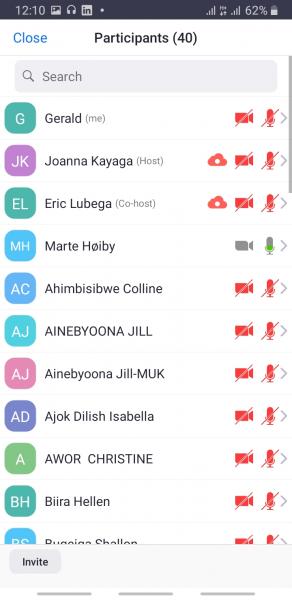
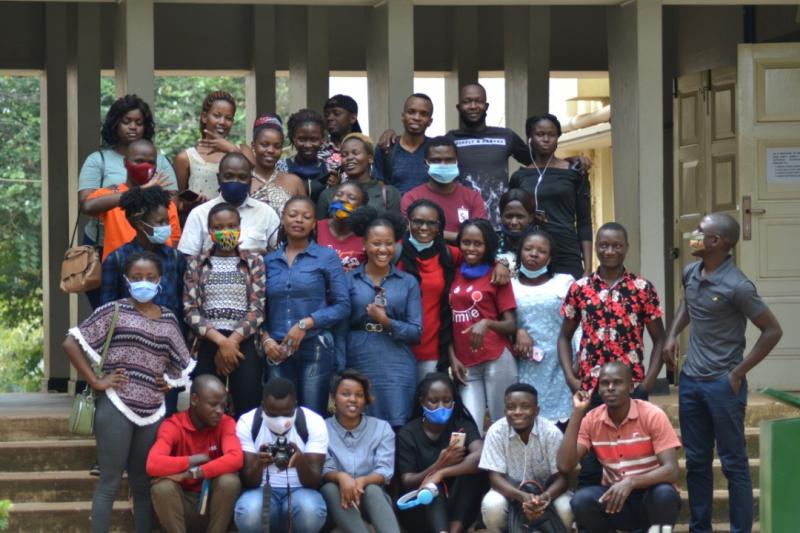
- Log in to post comments




